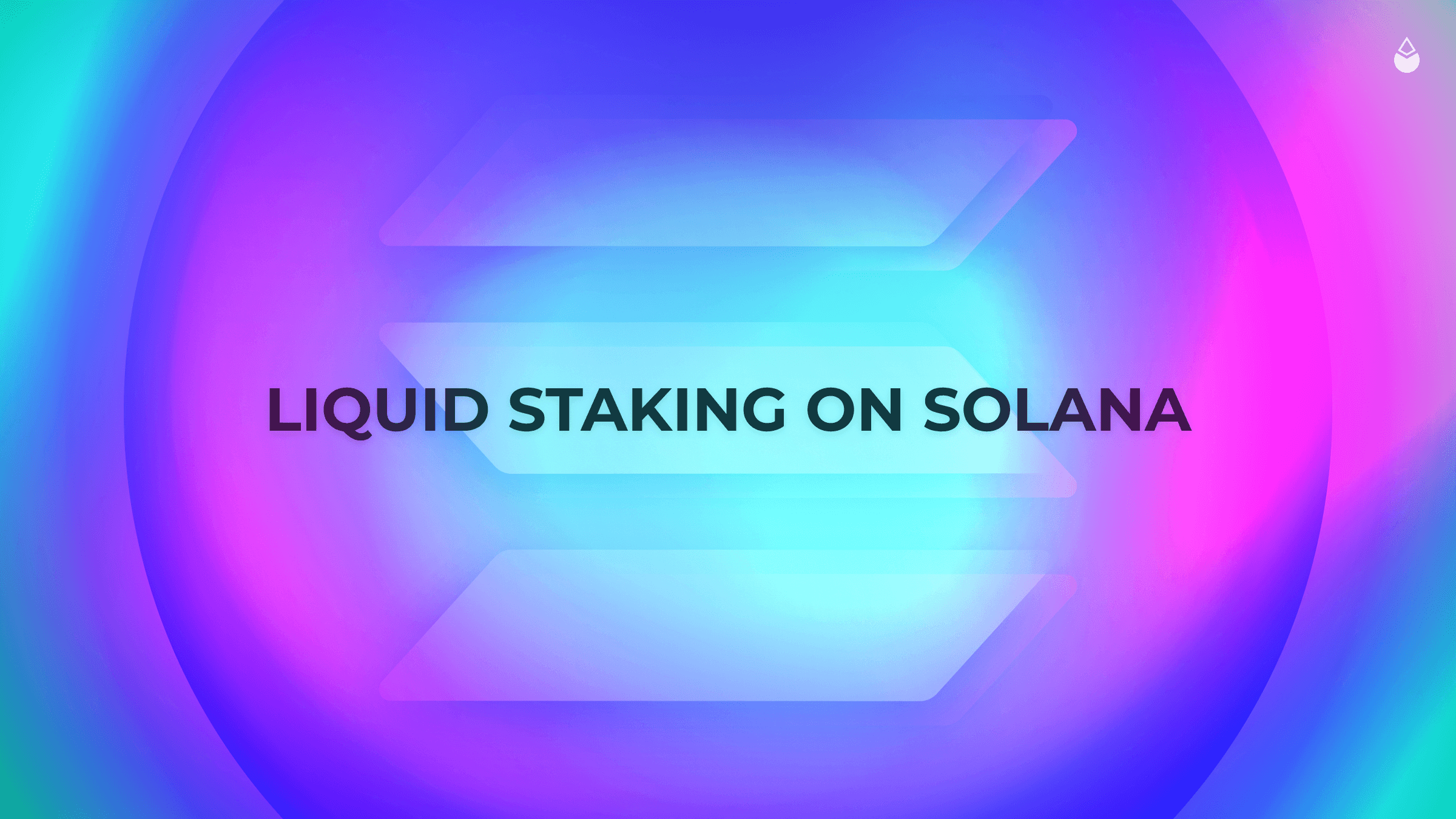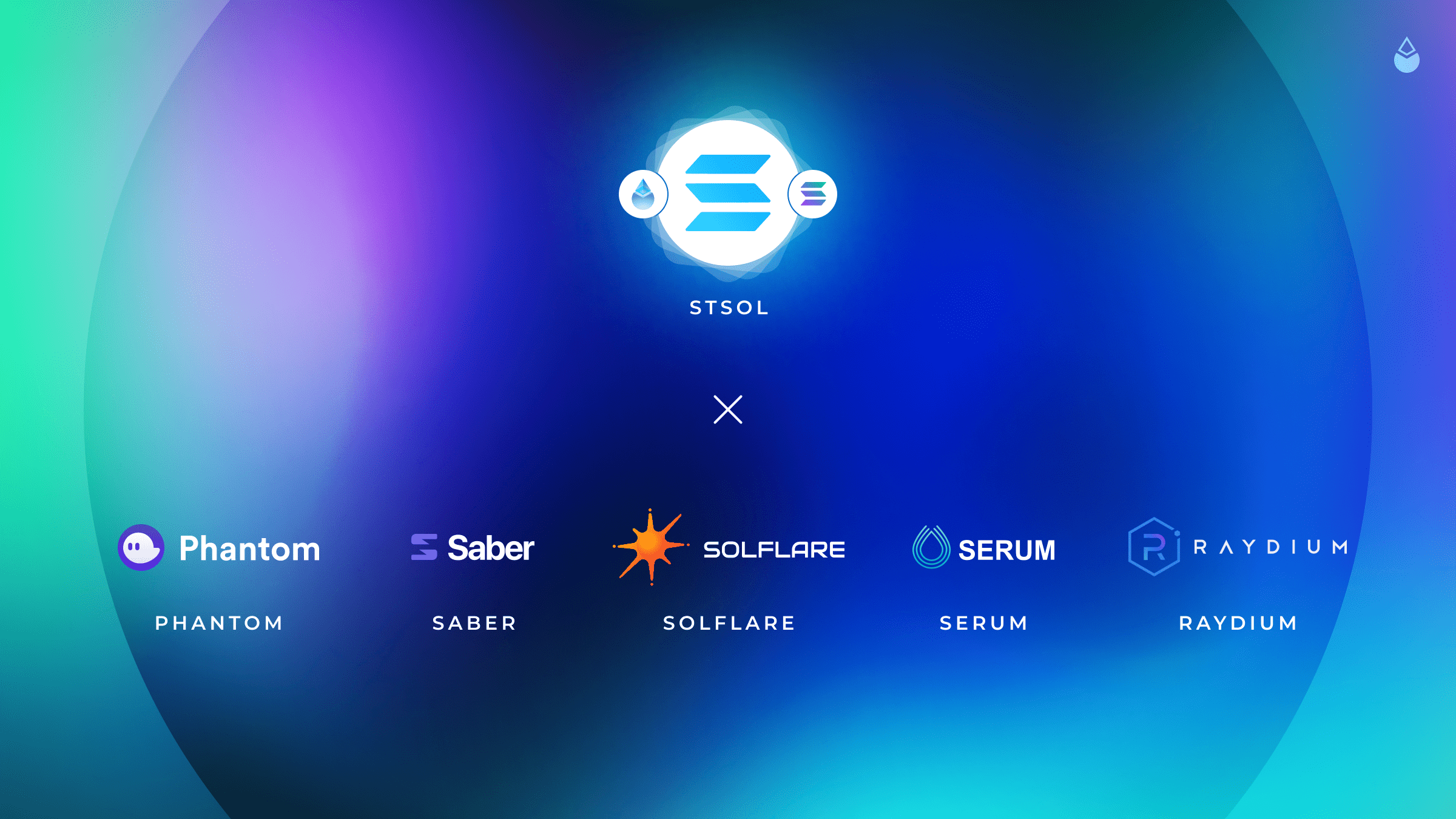Introducing Liquid Staking on Solana

Lido is pleased to announce the launch of liquid staking on Solana.
On April 30th, a mountain grant proposal by Chorus One was proposed to the Lido governance forums following the creation of LEGO (Lido Ecosystem Grants Organization). This proposal suggested expanding Lido’s liquid staking solution to the Solana blockchain.
Solana is one of the fastest blockchains in the world, supporting up to 50,000 TPS and allowing for a low transaction fee environment. Solana DeFi applications have also recently gained over 5 billion dollars in TVL, proving that there is an emerging DeFi market on Solana.
After 2 code audits, an extensive peer review, and an ongoing bug bounty program, Lido liquid staking is now launched on the Solana mainnet!
To start staking, head over to solana.lido.fi.
Staking SOL with Lido
Liquid staking on Solana is built around Lido’s stSOL token, a liquid token variant — similar to stETH — that allows users to passively earn staking rewards without needing to run their own validator infrastructure. stSOL can also be integrated into Solana DeFi platforms to allow for added DeFi use cases (e.g. additional rewards, collateral in lending protocols, etc) whilst allowing stakers to retain their staking rewards.
In summary, stSOL lets users:
- Earn staking rewards immediately upon depositing, without maintaining complex infrastructure or waiting periods
- Unstake at any time by swapping on the secondary market
- Stake with a diverse set of the industry’s leading validators
- Participate in the emerging Solana DeFi ecosystem whilst continuing to earn staking rewards
Instant access to staked SOL
With Lido, SOL holders can connect their wallet and deposit their tokens into Lido and immediately receive stSOL. stSOL tokens represent a share of the total pool of staked SOL and Lido automatically delegates this staked SOL to validators on the Solana network. When these delegations accrue rewards on their stake, the total SOL under management grows, increasing the value of stSOL tokens for holders.
Deposited SOL will be uniformly staked across participating Lido DAO-approved validators. Unlike stETH, stSOL is not a rebase token and rewards will not accrue as new tokens in your wallet. Instead, stakers earn their rewards in the form of appreciated stSOL value (similar to Lido’s wstETH). If a staker wants to unstake, they can redeem their stSOL back for SOL. Upon redemption, Lido splits off a stake account taking into consideration the accrued SOL rewards and transfers it to the user. The staker can then unstake those SOL and will receive liquid SOL after the deactivation period (by manually claiming through their wallet), which takes at least one epoch - or roughly 2-3 days. Even so, users can also instantly exchange stSOL for SOL at any time on the open market through the supported liquidity pools, e.g. on Saber and Raydium. Check out the introductory post from the Chorus One team to learn more.
Similar to stETH, stSOL will have a fee mechanism which equally distributes fees between node operators and the Lido treasury. Like stETH, the fee structure will be in control of LDO holders through governance. Initially, governance execution will be controlled via multisig by Lido stakeholders on Solana. Lido applies a 10% fee on earned staking rewards (not staked amount). This amount is split between node operators, the DAO treasury, and Chorus One, the Lido for Solana developers.
stSOL DeFi integrations
The power of liquid staking comes from its ability to combine the benefits of traditional staking - earning rewards on your tokens - and the ability to participate in a variety of DeFi activities to earn additional rewards. This includes lending, farming, collateralising tokens and more, all the while still earning staking rewards and securing the underlying network.

Initially, stSOL will be integrated into a variety of Solana applications, including Saber, Serum, Raydium, and others, allowing stSOL holders to provide liquidity and farm additional rewards. More information on this will follow in the coming days.
Supported Wallets
Lido for Solana supports the following 5 wallets:
- Phantom
- Solflare
- Ledger
- Solong
- Sollet
If you want support for some other wallet please reach out on Telegram.
Unstaking guides
After the deactivation queue ends, users will need to manually claim SOL from their wallet.
- Phantom (https://docs.solana.lido.fi/staking/phantom#step-6-unstaking-and-utlizing-stsol)
- Solflare (https://docs.solana.lido.fi/staking/solflare#step-6-unstaking-and-utlizing-stsol)
- Sollet (https://docs.solana.lido.fi/staking/Sollet#step-6-unstaking-and-utlizing-stsol)
- Solong (https://docs.solana.lido.fi/staking/solong#step-6-unstaking-and-utlizing-stsol)
What’s Next?
We are excited to see new use-cases for the stSOL token on Solana. The goal of Lido is to expand liquid staking to other blockchains as well — such as Polygon and Kusama/Polkadot — which will help Lido develop into the leading liquid staking protocol.